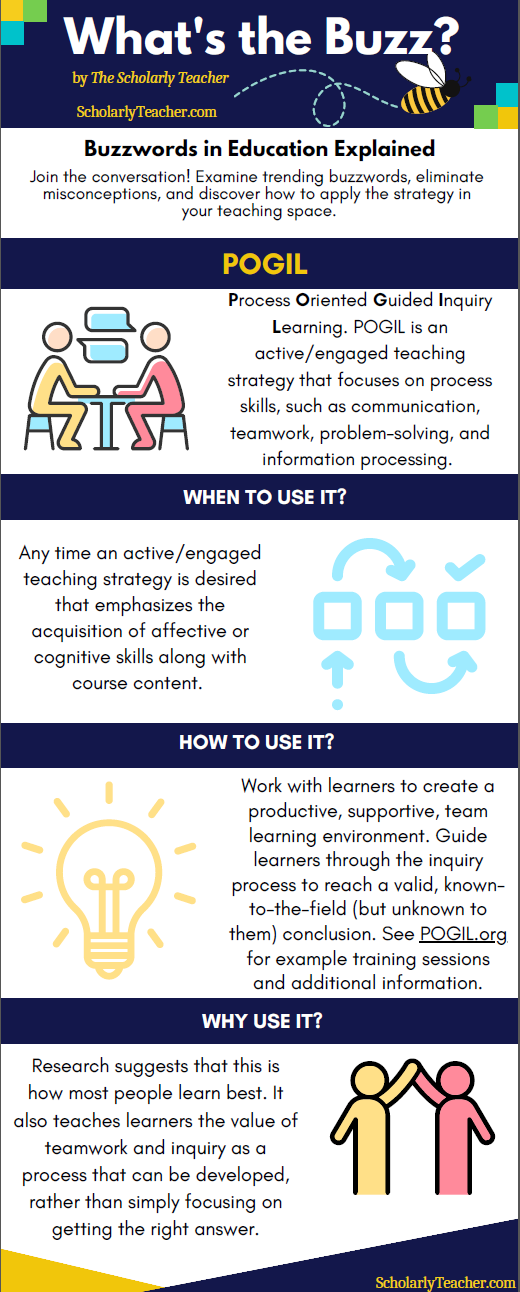Process Oriented Guided Inquiry Learning (POGIL)
To learn more about POGIL, go to the The POGIL Project or reach out to me. I am happy to share my experiences with POGIL. Because most of us in the Wilson College of Textiles are teaching unique content, we have to create our own POGIL activities, which can be a barrier to entry. But please don’t let that deter you. Writing activities is quite rewarding and watching the students actively discussing and engaging with challenging course content is its own reward. This link (Krause FPS 770 POGIL-1 F22) is to the activity I had accepted into the POGIL Activity Clearinghouse (aka PAC), which means it has been peer reviewed. It is a longer activity, designed for 1.5 70 minute class meetings, but it may take longer depending upon the students and the level of discussions you have during the group share outs.

Below are the slides to presentation that was given in Engineering Education Content, Assessment, and Pedagogy (EGR 590). This was an interactive session and the students did a computer science POGIL activity before we started discussing what POGIL is and why it is effective. These slides are provided for some basic information on POGIL. Please refer to the POGIL Project for more information (www.pogil.org).
